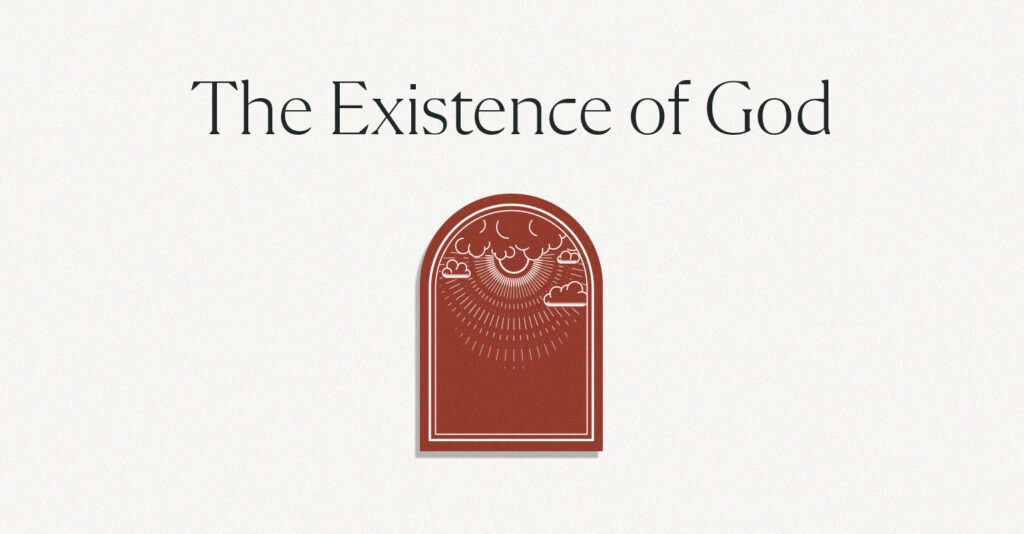
From time to time I make new entries in this continuing series called “Theological Primer.” The idea is to present big theological concepts in around 500 words. Today we will look at the existence of God.
The existence of God is not a conclusion to be reached so much as a given to be assumed. “In the beginning God” is, after all, how the Bible begins (Gen. 1:1). We all have an innate idea of God, a sense of the divine that leaves us without excuse (Rom. 1:19-20; Acts 17:24-28; Eccl. 3:11). Only the fool says in his heart there is no God (Ps. 14:1). God’s existence is the starting place for human knowledge, not the end point of human deduction.
This does not mean, however, that arguments for the existence of God are necessarily misguided. One can argue for the existence of God in a way that is subservient to human reason or in a way that supports divine revelation. Aquinas, for example, begins his discussion with Scripture, establishing God’s existence from Exodus 3:14 (“I am who I am”). Only after this does he argue that the existence of God can be proven “in five ways” (Summa Theologica, I. Q.2. Art.3):
- Argument from motion: There cannot be an infinite regression of motion. Someone or something must have absolute actuality, an unmoved mover.
- Argument from the nature of efficient causation: Cause and effect must have begun with some first cause.
- Argument from possibility and necessity: Existence cannot come from non-existence. Something must exist of its own necessity, not as a mere possibility.
- Argument from gradation: Something must be most good, most perfect, and most true—a supreme being from which all degrees of lesser perfection are determined.
- Argument from the governance of the world: Some intelligent being must exist by whom all natural things are directed to their appointed ends.
Protestant theologians often built upon Aquinas’s Five Ways. Turretin, for example, posits four proofs for the existence of God: the voice of universal nature (which encapsulated most of Aquinas’s arguments), the intricate design of human beings, the testimony of conscience, and the religious nature of all peoples throughout history (Elenctic Theology, III.i.i-xxvii).
Similarly, Shedd mentions five principal arguments (Dogmatic Theology, 201-216): ontological (a Perfect Being greater than which nothing can be conceived must by necessity possess existence), cosmological (motion implies a Prime Mover), teleological (the world is marked by design), moral (the testimony of conscience), and historical (all peoples believe in some kind of Supreme Being).
To be sure, we should not try to argue people into the kingdom of God, much less build a theological system on a rationalistic foundation. We know from the Bible that belief in the existence of God is ultimately an article of faith (Heb. 11:6). Nevertheless, there is a place for showing that the existence of God is rational and makes better sense of the world than does atheistic unbelief. Philosophy and human reason must not be the starting point for faith, but they can be used to defend, clarify, and confirm the faith.



